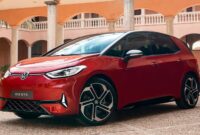Audi has been making fast wagons for 30 years, starting with the 1994 RS2 Avant built together with Porsche. And that won’t stop anytime soon. When asked by journalists whether there is a future for speedy estates, RS 6 GT technical project manager Nils Fischer said: “I would definitely say yes, for sure.”
The limited-run RS6 Avant GT special edition is described by Audi as a “model that reaches its maximum.” However, the company is strictly talking about the outgoing C8 generation. A follow-up to the current super wagon is coming before 2026, at which point the German luxury brand will only launch EVs. It means there’s still time for a final RS6 generation with a combustion engine.

Audi Head of Research & Development Stephan Reil has already confirmed the next RS6 will keep the gasoline engine but with an electric motor thrown into the mix. Even the outgoing model has a small dose of electrification with twin-turbo 4.0-liter V8 using a mild-hybrid setup. Its successor is expected to employ a plug-in hybrid system, and hopefully, built around a V8.
When the next-gen model arrives, it’ll go by another name. Audi has announced the A6 models with a combustion engine will transition to the A7 family. It effectively means an RS7 Avant is coming, as weird as that might sound. That will enable Audi to launch purely electric A6 models, including an RS6 as a wagon variant to the spied RS6 sedan.
Car paparazzi have already caught on camera prototypes of an A6 Avant E-Tron testing with the full production body. That electric wagon will ride on the Premium Platform Electric (PPE) architecture Audi developed with Porsche. The first model to utilize the hardware is new second-generation Macan, which has up to 630 horsepower and 833 pound-feet on the Turbo model. So expect healthy numbers from a future RS6 Avant E-Tron.

The smaller RS4 Avant, a forbidden fruit in the United States, will also live to see another generation with a different name. The future RS5 Avant will employ a plug-in hybrid arrangement, per an announcement made by former Audi Sport Head of Development Oliver Hoffmann in 2019.
At the RS6 GT’s global debut, a company spokesperson said we should “stay tuned” for performance-oriented Avant models. Audi Product Marketing Manager Kenneth Dose assured enthusiasts fast wagons are here to stay: “I think the past has proven that there was a past for the wagons, and when we look at the cars and how beautiful cars like that still can be developed, we think there’s definitely a future.”
The competition isn’t abandoning potent wagons either. BMW finally has an M3 Touring in its ever-growing M portfolio and will soon bring back the M5 Touring. The former isn’t sold in the United States, but multiple reports state the latter might just get a US visa. Bavaria’s large estate is going to debut later in 2024 with a plug-in hybrid V8 rumored to make over 700 hp. Come 2025, a beefier M3 CS Touring will hit the market.
At Mercedes, the AMG C63 has lost its brawny V8 in favor of an intricate plug-in hybrid powertrain based around a four-cylinder, 2.0-liter engine. The long-roof model isn’t destined for the US market either.

Although the German luxury trio has been obsessed with launching SUVs of all sizes, it’s not giving up on good ol’ estates. The exciting ones will all be electrified to meet increasingly stringent emissions regulations, albeit the M3 Touring won’t get a charging port in its current generation. However, BMW M has confirmed an electric M3 sedan is planned on the Neue Klasse platform, so an equivalent wagon seems like an educated guess.
The 2020s are likely going to represent the last full decade of fast wagons with a combustion engine before everything becomes electric. Some of the cars might survive into the early 2030s, but the clock is already ticking for ICE power in a performance estate.



